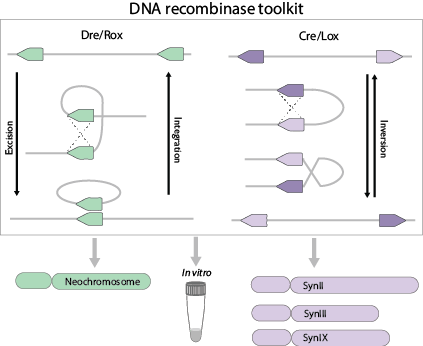DNA Synthesis Automation
To close the gap between design and fabrication in synthetic biology, we are proposing to automate the DNA synthesis process, utilizing liquid handling robots and other laboratory automation equipment. The first goal is to implement basic molecular biology operations on a liquid handler, such as cherry picking, PCR, gel electrophoresis, cloning, bacterial and yeast transformation, plasmid DNA miniprep, and colony screening. In each step of molecular biology experiments, there will be failures, and how to reschedule these failures in an optimized fashion is a bigger challenge. Therefore, the second goal is to develop a workflow management system which schedules experiments based on given optimization objectives, such as cost, total time and minimal hands-on time.
EMMA
Traditional cloning methods often require laborious manual design and assembly of plasmids using tailored sequential cloning steps. This process can be protracted, complicated, expensive and error-prone. In our lab, we have developed an extensible mammalian modular assembly kit (EMMA), that facilitate the efficient design and production of bespoke vectors relieving a current bottleneck for researchers. The method supports assembly of combinatorial libraries, and hierarchical assembly for production of larger multigenetic cargos. We are also investigating new efficient ways of delivering megabase-size DNA constructs into mammalian cells. EMMA is compatible with automated production and provides new opportunities for mammalian synthetic biology.

DNA Recombinase toolkit for synthetic biology
Site-specific DNA recombinases are a family of DNA enzymes that can recognize specific DNA sequences and drive DNA recombination between specific sites to achieve deletion, inversion, integration or transposition of target DNA fragments. The Sc2.0 synthetic yeast genome is designed to contain numerous LoxP sites located throughout, enabling random genome rearrangement for accelerated yeast evolution, a process called SCRaMbLE-(Synthetic Chromosome Recombination and Modification by LoxP-mediated Evolution).
Our group is also constructing a tRNA Neochromosome that contains all tRNA genes relocated from the synthetic yeast genome. For the purpose of SCRaMbLE, a recombination system based on Dre/rox achieves orthogonal evolution of the neochromosome.



